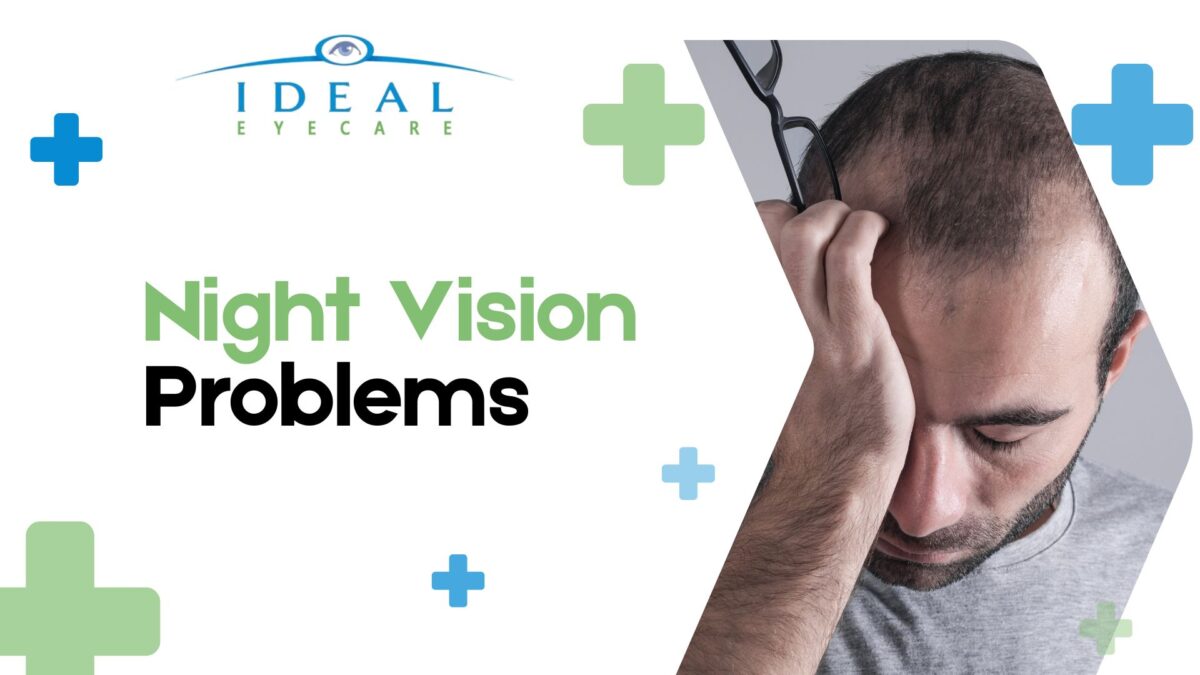
Did you know that nearly 1 in 5 Canadians struggle to see in dim light? This common problem often goes unnoticed. It can make everyday tasks harder, like adjusting to dark rooms or driving at night.
At Ideal Eyecare in Mississauga, we help with night vision issues. Our team uses advanced tools to find the cause. Many people feel off balance when moving from bright to dark areas.
Knowing why you have trouble seeing at night is key. If not treated, it can make daily life harder and riskier. But, most cases can be helped with the right treatment.
Key Takeaways
- Approximately 20% of Canadians experience low-light vision difficulties
- Transitional discomfort between light levels often indicates underlying issues
- Professional assessments reveal nutritional, genetic, or age-related factors
- Customized solutions improve safety and quality of life
- Early intervention prevents progression of treatable conditions
Understanding Night Vision Challenges

Your ability to see in the dark depends on how well your eyes work. As you get older, your eyes don’t work as well. This is because of changes in the way your eyes handle light.
At the heart of this issue are the rod cells in your retina. These cells are very sensitive to light. When it gets dark, they need time to get ready for night vision. This process can take up to 30 minutes.
- Pupils shrink to ⅓ of their youthful size by age 60, reducing light intake
- Eye lenses yellow and harden, filtering blue light important for seeing contrasts
- Rhodopsin production slows, making it harder to adapt to dark by 2-3 minutes each decade
These changes affect how well you can see at night. In Ontario, most vision problems happen at dusk or night. This is true for drivers over 55, who make up 43% of these cases.
It takes your eyes 8 times more light to see as well at 60 as at 20. This is why night vision gets harder with age.
Driving in cities makes things even tougher. The quick changes in light from streetlights and headlights are hard for older eyes to handle. This is why 62% of Canadians find driving in mixed-light areas harder.
Common Causes of Night Vision Problems

Struggling to see after sunset? Night vision issues often come from health problems or environmental factors in Canada. Let’s look at five main causes affecting Ontarians, based on local data and eye care advice.
Refractive Errors and Uncorrected Prescription
Nearsightedness or astigmatism not corrected can make night vision hard. Seeing blurry streetlights or halos around car headlights? It might mean you need new glasses. Ontario drivers need 20/50 visual acuity standards for a license. Regular eye exams keep your prescription up to date.
Cataract Development
Cloudy lenses scatter light, making night driving tough. Reports show 38% of Mississauga drivers over 60 need cataract surgery. Early cataracts often get worse at night before affecting daytime vision.
Vitamin A Deficiency
Vitamin A helps make rhodopsin, key for seeing in the dark. Health Canada suggests 900 mcg daily for men and 700 mcg for women. Try these Ontario-grown foods:
- Sweet potatoes (1 medium = 1,400 mcg)
- Kale (1 cup cooked = 885 mcg)
- Fortified dairy products
Glaucoma Medications
Some eye drops, like those at Toronto’s Ideal Optical, can affect night vision. Prostaglandin analogs (latanoprost, bimatoprost) can shrink pupils by 15-20%, reducing light. Tell your ophthalmologist if you notice any changes in your night vision.
Retinitis Pigmentosa
This genetic disorder affects 1 in 3,500 Ontarians, according to health data. It damages rod cells, leading to:
- Delayed dark adaptation
- Tunnel vision progression
- Difficulty spotting moving objects at night
Genetic testing through Ontario’s health network can spot inherited risks early.
Effective Solutions for Improved Night Vision
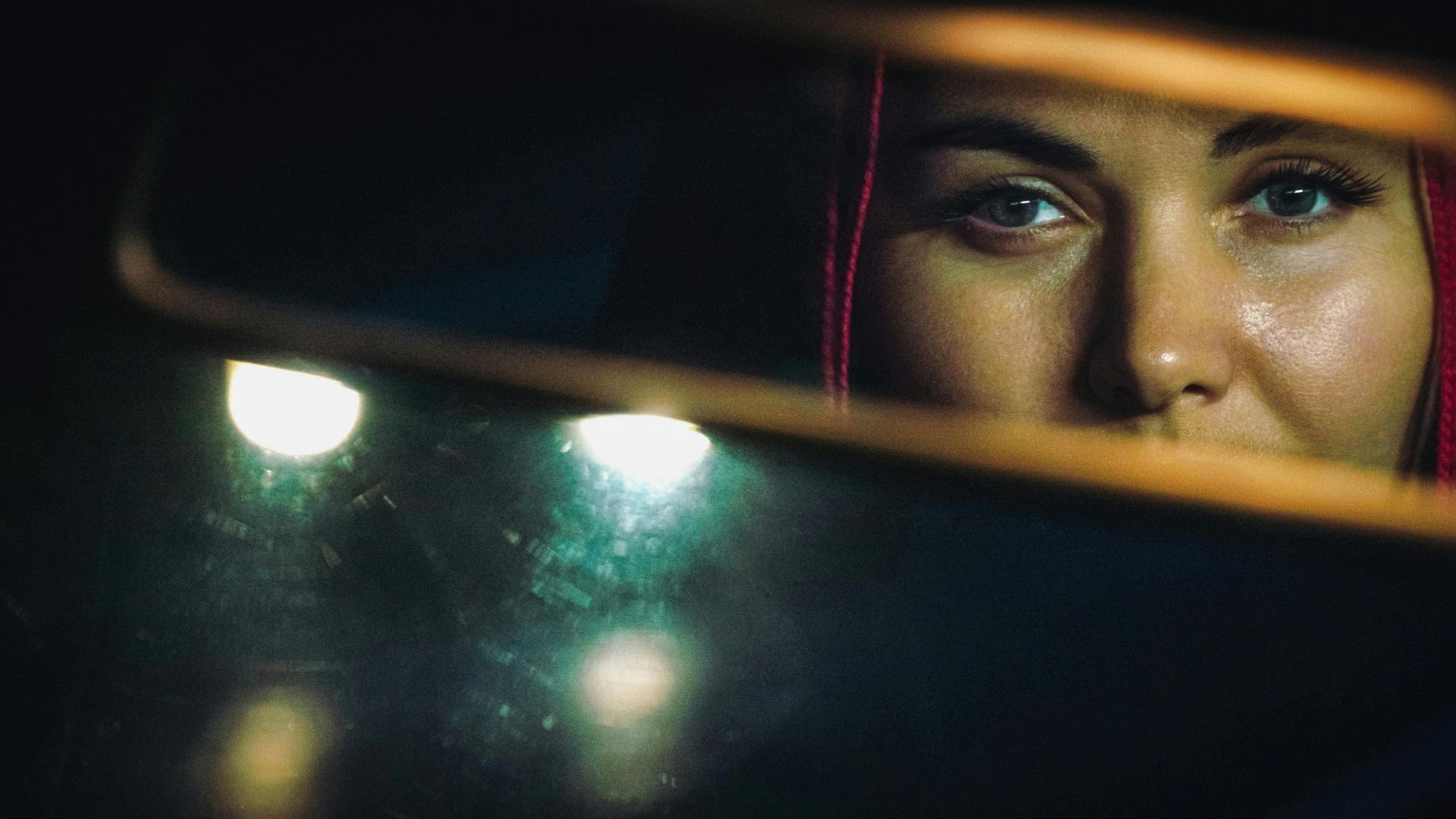
Night vision problems don’t have to hold you back. Modern eye care offers many ways to fix these issues. We’ll look at proven methods that tackle the main causes of poor night vision.
Precision Prescription Updates
Old glasses or contacts are a big problem. Ideal Eyecare uses advanced tech to find vision changes that old eye charts miss.
Anti-Reflective Coatings
Our experts add special coatings in-clinic. These coatings:
- Lessen glare from lights
- Make it easier to see in the dark
- Reduce halos around lights
Specialized Contact Lenses
For those with astigmatism, we have toric lenses. They offer:
- Clearer vision at night
- Better tear film
- Custom fit markers
Cataract Surgery Options
Cloudy lenses can cause night vision problems. Phacoemulsification surgery can help by:
- Breaking up the lens with sound waves
- Using top-notch lens implants
- Being done in one day with quick recovery
Studies show 94% of patients see better at night within 30 days after surgery.
Nutritional Optimization
Ideal Eyecare also focuses on diet. We help with:
- Meals high in vitamin A
- Omega-3 supplements
- Keeping an eye on antioxidants
With the right glasses and diet, we can solve night vision problems for good.
Ontario’s Vision Safety Standards
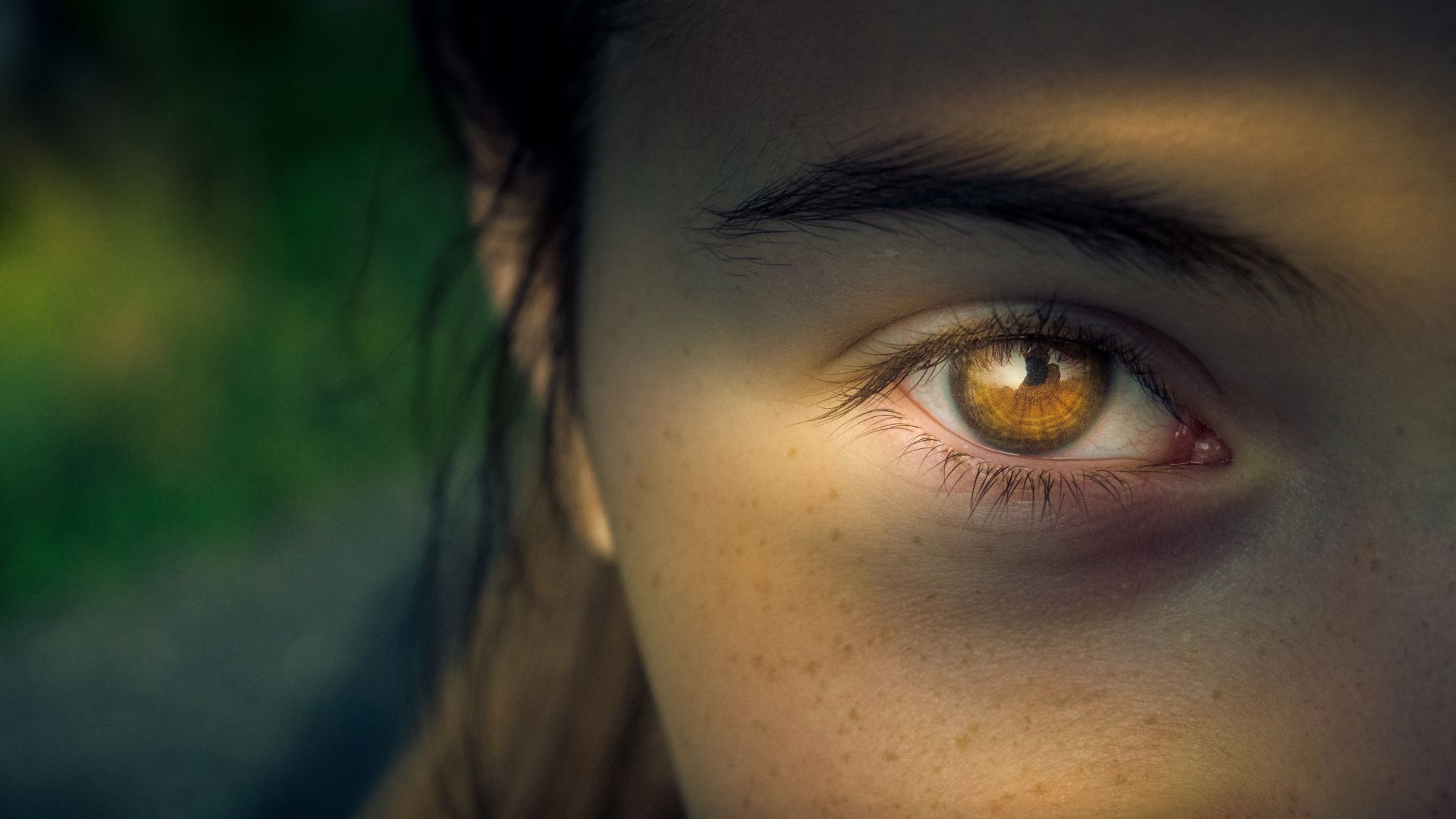
Understanding Ontario’s night driving rules is key to road safety. The Ministry of Transportation (MTO) sets clear standards to protect everyone. They check if drivers can see well in the dark, focusing on issues like glare, low light, and seeing things around them.
- A minimum 120-degree horizontal visual field
- Approved contrast sensitivity test results
- Corrected visual acuity of at least 20/50
Contrast sensitivity tests are very important. They catch problems that regular eye tests might miss. At Ideal Eyecare, we use special MTO-approved tools to see how well you can spot objects in low light. This is vital for driving at night.
We do more than just basic tests. We check:
- Dynamic glare recovery times
- Peripheral motion detection
- Low-light color perception
Our detailed tests make sure you meet Ontario’s rules. They also find any issues that can be fixed. It’s even more important to get checked after 50, as eyes change with age.
Diagnostic Approaches at Ideal Eyecare
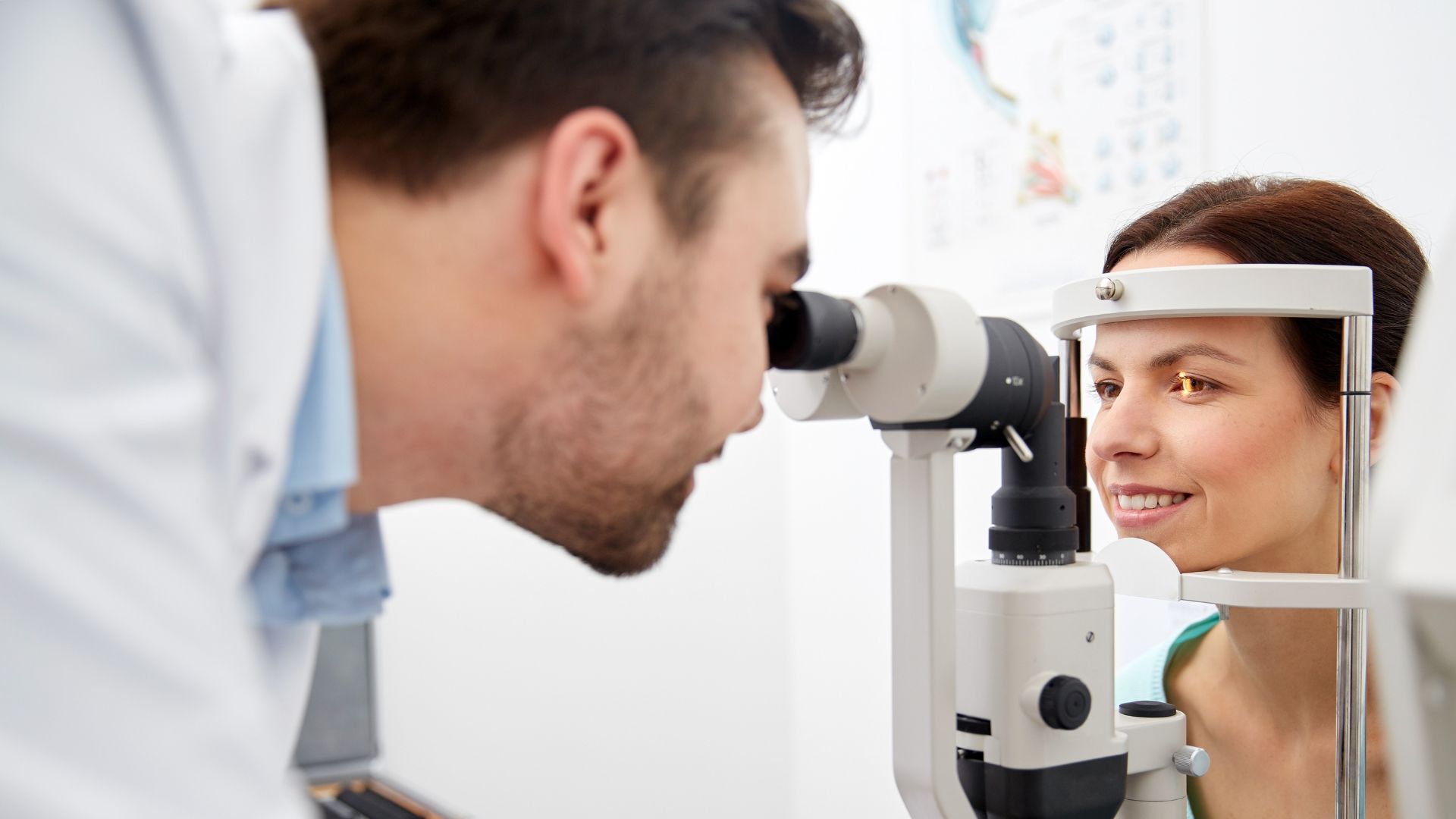
Identifying what affects night vision needs advanced tech and expert eyes. Our Mississauga clinic uses three special tests to find small vision changes. These tests go beyond regular eye exams.
Contrast Sensitivity Testing
Eye charts can’t show how well you see in the dark. Our tests check how you see in low light. They look at:
- Seeing shapes in dim light
- Seeing well in twilight
- How fast you adjust after bright light
This test takes 15 minutes. It uses digital tools to make maps of your contrast sensitivity. These maps show early signs of night vision problems, helping keep you safe while driving.
Retinal Imaging Technology
We use Heidelberg Spectralis OCT scanners for eye health checks. This top tech:
- Shows detailed views of the eye
- Measures eye thickness with high precision
- Tracks changes in eye cells
These scans spot physical issues like retinal or optic nerve problems. Our team gets certified every year to keep images clear.
These tests, along with traditional ones, give a full view of your vision. Patients get a detailed report. It explains how their test results affect night vision in real life.
When to Seek Professional Help
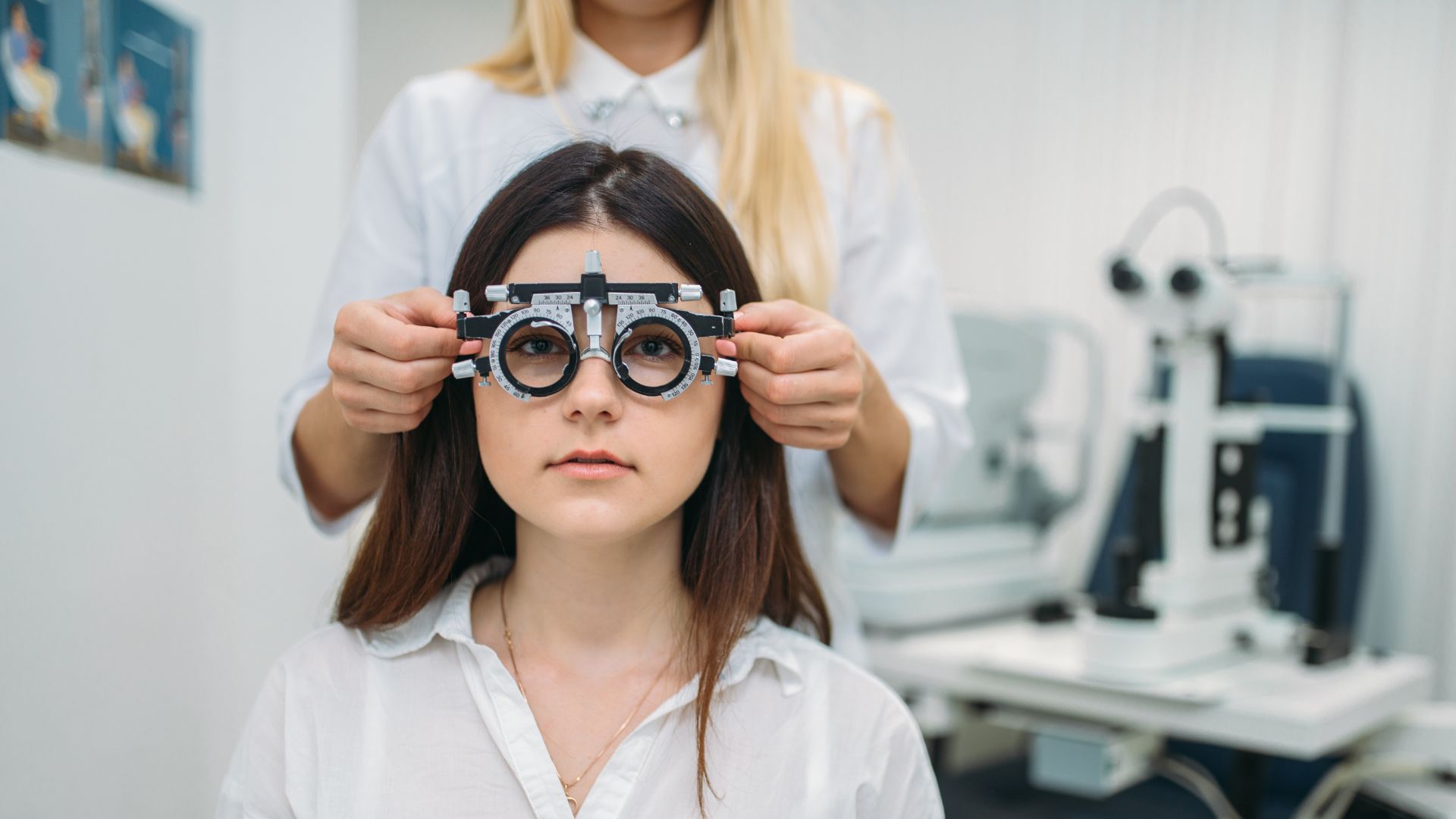
Knowing when to get help for night vision problems is key to avoiding bigger issues. While it’s normal to have trouble seeing in the dark sometimes, certain signs might mean you need to see an eye doctor right away.
- Sudden decline in nighttime visibility
- Persistent halos or glare around car headlights
- Struggling to identify facial features in low-light settings
Signs like sudden loss of night vision or quick changes in symptoms are emergencies. They could mean serious problems like retinal detachment or advanced glaucoma.
If you’re driving in Ontario and having trouble seeing at night, get an eye exam. Ideal Eyecare uses the latest tools, like retinal imaging, to find out why you’re having trouble. Our doctors will give you the right treatment, from new glasses to special treatments.
Worried about driving safely at night? Call Ideal Eyecare at (905) 507-9752 to book a detailed check-up. Getting help early can make a big difference and keep you safe on the road.
Conclusion
Knowing what makes it hard to see in the dark is key to better eye health. Many things can affect how well we see at night, like not wearing glasses or having cataracts. Regular eye checks at places like Ideal Eyecare in Mississauga’s Heartland can spot problems early.
They use advanced tools like retinal imaging and contrast sensitivity tests. This helps catch issues before they get worse.
Preventing vision problems starts with using modern solutions and good habits. Wearing the right glasses can make a big difference. Cataract surgery can also help a lot.
Eating foods rich in vitamin A is good for your eyes too. The team at Ideal Eyecare makes plans that fit your needs now and in the future.
If you struggle with seeing at night, get an eye check. Catching problems early can stop them from getting worse. Come to our Heartland clinic or book online to find solutions that work for you.
